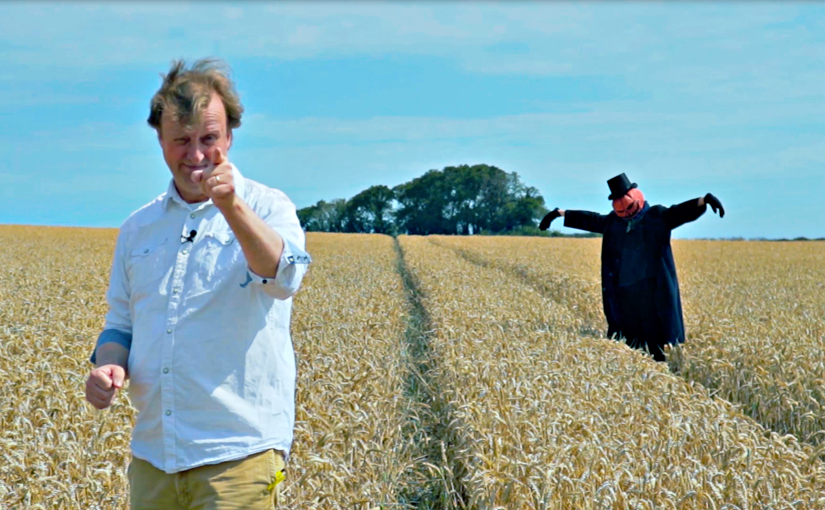Here’s my big tip for screenwriters who are starting out and are worried about correct formatting…
Links: Highland 2: https://quoteunquoteapps.com/highland-2/
Slugline: https://slugline.co
Fade-In: https://www.fadeinpro.com
Scrivener: https://www.literatureandlatte.com/sc…
Trelby: https://www.trelby.org
Scriptnotes Podcast: https://johnaugust.com/scriptnotes
TRANSCRIPT:
Hello, folks, let’s talk about screenplay formatting. There’s an awful lot of hooey online about screenplay formatting and it can be extremely off putting for the debut screenwriter.
“Don’t make any slug lines bold.”
“No, *do* make your slug lines bold.”
“Don’t include camera directions”.
“Don’t put direction in parentheticals.”
“Don’t add musical cues.”
“And will the words “we see” get me put into movie jail, where I shall rot for the rest of my life?!”
Well, I’ve managed to break all of these so called rules on pretty much every script I’ve written, most of them on my next film, which is out next year and it hasn’t really done me any harm. If you want to learn about screenwriting and formatting, here’s the thing: read. Read as many screenplays as you can get your hands on. And here is the good news. There are millions of the blimming things, all available for free from legitimate sources. I’ll always point people to the BBC’s Writers’ Room, which has a ton of scripts that you can download completely free of charge.
And when it’s awards season time, you’ll see fresh batches sent out by the studios for Academy voters to read. And you can read them too. Follow me on social media as I’ll always share and RT the links.
But why? you say. Why should I read scripts when I could be writing? Because the more you read, the more you realise there are no rules, merely guidelines. The differences between a Wed Anderson script, a Pixar animation, a Coen Brothers movie, a Marvel movie will be noticeable even to the first time reader.
One little tip, try and read as much stuff as you can that was produced in the last few years. Formatting and style is constantly evolving. A lot of screenplay, books and courses point to scripts like James Cameron’s script for Aliens, Callie Khouri’s Thelma and Louise. And while these are brilliant scripts, these are old movies and as such the formatting is a bit old hat.
And don’t ever stop reading. You will always be discovering new ways to liven up your screenplay. So if the formatting of all these great screenplays can be so different, what’s the common element underlines the all? Clarity. They’re all trying to play a movie in the reader’s head. And here’s what few beginner screenwriters realise: the script you’re writing now isn’t the one that will be filmed. It’s basically a sales document.
It will be read by development execs, producers, agents, the kinds of people who try and help you get it made. And, as such, you need to make that movie spring off the page and into their brains. And to do that, yes, you sometimes have to tell the reader where you’re pointing the camera, or how an actor should say a particular line, or that “we see” someone do something totally pivotal to the plot that might otherwise be missed. Once you go into production, a director, producer, designers, actors all get involved with the script, then changes and decisions will be made about camera angles, music, line delivery, etc.
It will evolve because film is collaborative. It is now their movie is much as it is yours. Don’t go into the movies if you want total authorial control.
That’s why I love writing novels between screenplays. The more you read and the more you write screenplays, you’ll start to develop your own style. And as for formatting, to start with… don’t bother. Here’s a first draft of the screenplay I finished just the other day. I’ll hold it far away so you can’t actually read it. Lots of spoilers.
It’s all hand-written, baby. No formatting. Why? I’ve been finding that formatting just gets in the way of my creativity. I just grab a pen and paper and use that hotline from my brain to the page. It’s something I’ve been doing a lot this year and it’s really working for me. Then I type it up in my screenwriting software.
I’m currently using either Highland 2, or Slugline, which are both designed for the Mac. Nice and clean, very simple to use. They do 99% of the formatting automatically. I would also recommend Fade-In. Scrivener has a pretty good screenplay option and I hear good things from my Windows PC friends about Trelby. I’ll put links to these in the description below.
Whatever you do, don’t rush out and buy Final Draft. People will go on and on about them being the industry standard, but it’s expensive and top heavy with the kinds of bells and whistles you don’t actually need until you go into production. Then Final Draft comes into its own for budgeting, scheduling and revisions, but you don’t need to worry about any of that quite yet. So if you’re starting out, I hope that sets your mind at ease. There are no arcane rituals or rules that must be slavishly followed.
There is no miracle software that will turn you into William Goldman or Nora Ephron.
What you need to do is write an incredible, compelling story with characters, action and dialogue that is out of this world. Yes. A doddle. Oh, and I highly recommend the Scriptnotes podcast. Brilliant advice from John August and Craig Mazin and their many guests who are actual working screenwriters and really know how all this stuff works.
So get going. Until next time. Happy writing.















